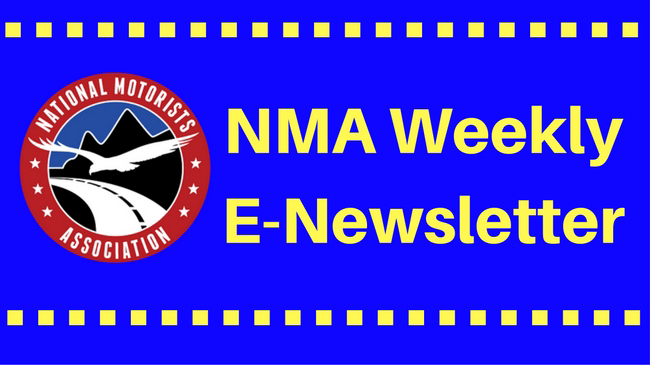
The sausage-making is in full swing as opposing parties in Washington wrestle the Senate’s $1.2 trillion bipartisan infrastructure bill and the House’s $3.5 trillion version to the ground. In Infrastructure Urgency, Part 1, NMA E-Newsletter #659, we shared the first two in a series of NMA emails directed to members of the Transportation & Infrastructure Committees from both chambers. We urged them to strike proposed funding for anti-motorist Vision Zero programs and anti-engineering speed limit reductions.
While the likelihood of our advocacy efforts swaying the opinions of most legislators remains to be seen, the responses received so far are helping us identify pro-driver champions with whom we can work.
The same is true of subsequent rounds of personalized NMA messages sent to the T&I Committee members recently. View our Automated Enforcement email to Capitol Hill below. In next week’s newsletter, look for our criticism of the proposed pilot programs for implementing new mileage-based road user taxes and a very interesting reply from a member of Congress.
NMA August 23rd/24th Email to Senate and House Top T&I Aides
H.R. 3684 Infrastructure Bills: Concerns of the Motoring Public, Part 3 – Automated Enforcement
Dear Richard,
The real question with automated enforcement is whether the public wants the federal government to fund automated ticketing programs that include a profit motive for cities and camera vendors. For-profit photo enforcement has been the trigger for a long list of prosecuted corruption and fraud.
As noted in Parts 1 and 2 of this email series from the National Motorists Association, a nonprofit driver advocacy organization, the funding of Vision Zero programs to the tune of $1 billion through 2026 will signal the federal government’s tacit approval to restrict driving beyond established norms while simultaneously increasing enforcement efforts. The net effects, particularly when automated enforcement is part of the equation, are increased non-compliance with traffic laws by safe drivers, higher ticketing rates, and increased distrust between communities and law enforcement.
There are also a number of constitutional objections to automated enforcement, not the least of which is that the cameras don’t positively identify the driver in an alleged violation, so the ticket is automatically issued to the registered owner of the vehicle. The owner may or may not have been behind the wheel at the time of the incident. This becomes “guilty until proven innocent,” which can be difficult to defend against, even if truly innocent.
There is nothing more detrimental to public trust than enforcement methods that place or are perceived to place profit motives over fairness and safety. But the revenue extracted from automated enforcement programs comes close because, over the past 17 years, as this crime line so aptly illustrates, more than seven dozen prosecuted instances of fraud and corruption have been instigated by operators of red-light and speed camera programs. A sampling of some notable lowlights follows my sign-off below.
If federal funding of automated enforcement is to be done, it must be on the basis of break-even operation. With discord between the police and community continuing to simmer, tickets by camera — especially those that line the pockets of others — is a recipe for creating an even wider societal divide. And, this should be no surprise, when camera programs are forced to relinquish profits and are no longer money-makers, history shows that the hardware is typically removed in due time. That wouldn’t be so if safety was the primary motivation for automated enforcement.
One more question related to something you live with every day in DC. Do Senator Merkley’s constituents really want this type of command-and-control enforcement in their own cities? Based on the regular feedback we get from motorists, the answer is more likely than not, “Not in my backyard.”
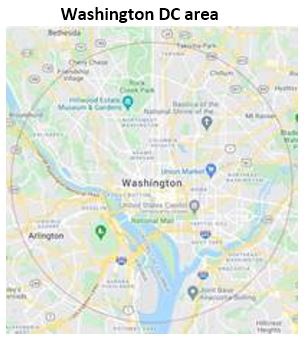
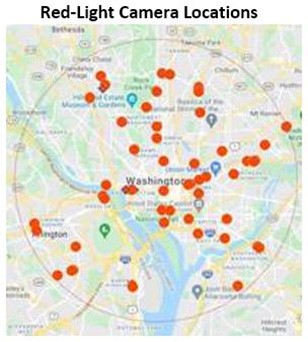
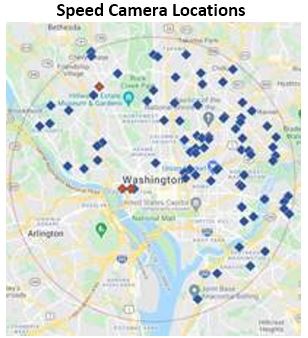
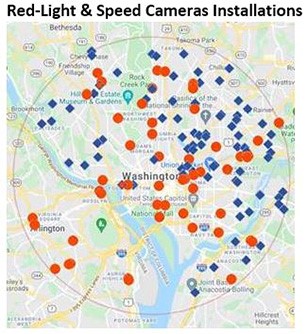
The NMA, a nonprofit organization representing the nation’s motorists, encourages Senator Merkley to oppose the federal funding of automated enforcement directly or through Vision Zero programs.
Thank you for your consideration,
Gary Biller
President/CEO

National Motorists Association
Empowering drivers since 1982
Automated Enforcement Crime Line (abridged)
March 2013
Scandal hits Jefferson Parish, Louisiana, when councilman reveals that Redflex had paid a 3.2 percent cut of the firm’s profit on each ticket issued to lobbyist Bryan Wagner, a former New Orleans city councilman, who in turn shared the funds with the wife of District Judge Robert Murphy.
2014 Redflex (camera vendor) bribery scandal in Chicago and Ohio
A Federal Bureau of Investigation into the practices of Redflex Traffic Systems revealed that the firm delivered bribes to politicians in Chicago, Illinois, and Columbus, and Cincinnati, Ohio. The company admitted its US operation lied to public officials. The firm’s executive vice president admitted that bribes were also issued in other states, including Arizona, California, Colorado, Florida, Georgia, Massachusetts, New Jersey, New Mexico, Tennessee, Virginia, and Washington.
Karen Finley, former head of US operations for Redflex, was charged with nine counts of mail fraud, three counts of wire fraud, three counts of bribery, and one count of conspiracy to use bribes to win and expand a lucrative red-light camera contract with Chicago, Illinois. She was found guilty, fined $2 million, and served time in federal prison until 2018.
Chicago transportation official John Bills was convicted of accepting $2 million in Redflex bribes in return for his help in ensuring Redflex won the lucrative red-light camera contract. He received extra money every time a new red-light camera was installed.
Redflex contractor Martin O’Malley admitted that he helped deliver $2 million in bribes to the Chicago, Illinois official in charge of the red-light camera program.
Redflex executive vice president Aaron M. Rosenberg was convicted of orchestrating the bribery program, but he avoided jail time because he turned evidence against his former colleagues. In 2018 he lost a bid to collect a reward for cooperating with authorities.
Redflex lobbyist John P. Raphael was convicted in 2016 of soliciting bribes from Redflex for distribution to politicians in Columbus and Cincinnati, Ohio. Because he refused to turn on those politicians, they escaped being charged with accepting the bribes.
December 2017
Pennsylvania Auditor General issues report exposing corruption in the Philadelphia red-light camera program, including self-dealing by the officials in charge of the cameras.
2018 Dallas, TX Bus Camera Scandal
The Federal Bureau of Investigation exposed a massive corruption scandal involving school bus stop arm cameras in Dallas. Read the FBI’s account of the takedown here.
Then Dallas County Schools superintendent was convicted for taking $3 million in kickbacks from Leonard in return for signing the school bus ticketing camera contract that ultimately caused the dissolution of Dallas County Schools.
May 2019
Whistleblower exposes corruption in the Philadelphia, Pennsylvania red-light camera program, including rigged audits and contract bidding irregularities.
January 2020
Illinois Senate Transportation Committee Chairman Martin A. Sandoval enters a guilty plea to the charge of accepting bribes from SafeSpeed in return for his work in killing legislation that would have banned or limited the use of automated ticketing machines.



